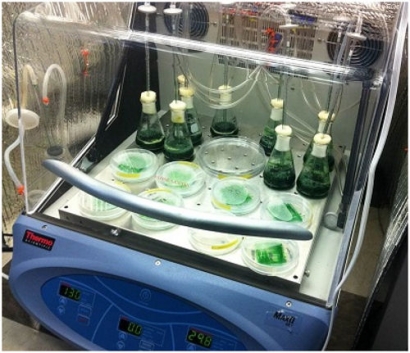Research is key to future success.

A new, $1.5 million Department of Energy grant brings together experts from three institutions to parse the metabolism of a blue-green algae that holds great promise for biofuel production.
The team, led by Professor of Chemical and Biomolecular Engineering Jamey Young, will take a systems biology approach to identify how cyanobacteria, also known as blue-green algae, can be engineered to produce large amounts of lipids in the form of free fatty acids. Significantly, free fatty acids secreted by cyanobacteria are more easily recovered than lipids typically produced by green algae.
“Lipid-based products that can be converted to biodiesel or other value-added biochemicals represent one of the most promising platforms for petrochemicals replacement,” Young said.
Cyanobacteria are already capable of producing lipids directly from sunlight and atmospheric carbon dioxide using photosynthesis, but not at the rates and quantities necessary to sustain a commercial biofuel process. The goal of this new project is to understand how lipid metabolism is regulated in cyanobacteria so host cells can be engineered for high-yield production of medium-chain free fatty acids, which are readily converted into fuels.
Biofuels.$1.5 Million Grant

